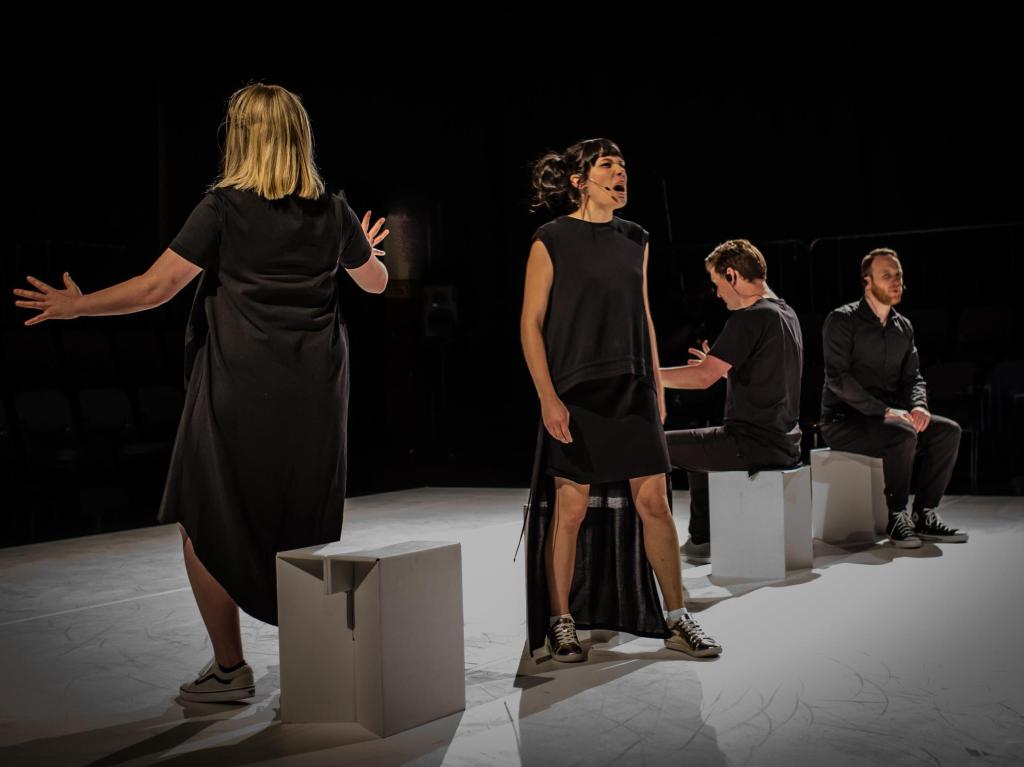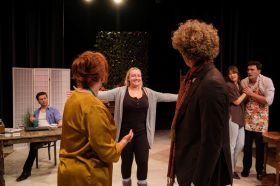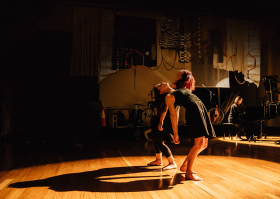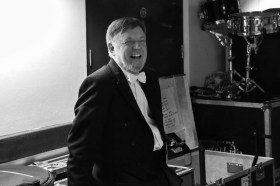Permission to Speak at Arts House. Photograph by Bryony Jackson.
‘There is a simmering unspokeness that sits amongst family members,’ and the intention of Permission to Speak is to break that silence. Permission to Speak is an intimate theatre with all corners of the stage facing the audience. Certainly there is no room for mistakes but this piece had been thoroughly rehearsed as though every actor not only knew their actions but the actions of their fellow performer.
Minimalism was key – only a monochrome colour palette occupied the stage and props were only used if necessary. In Permission to Speak the props didn’t serve as a distraction from the performer or used as a glitzy statement. Permission to Speak is not a stage play of sorts, however, I would consider it as a ‘stage poem’ characterised by vignettes, faded memories of childhood and personal observation, moreover, an overarching duality between what you are supposed to say and what you really think – mostly to do with one’s parents. The performance did not have a narrative or any instance that was particularly climactic, hence, its poetic aspect; by this, the performance would not be for an audience who is unfamiliar with avant-garde and postmodern theatre.
Permission to Speak, direction and text by Tamara Saulwick composed by Kate Neal, utilises recordings of past interviews depicting the various childhood memories of unknown individuals – some heartfelt, some regrettable, some with a milieu of the sprawl of suburbia that is needed to be forgotten.
Four musicians sing a cappella overlapping the ‘ums’ and ‘ahs’ as they rhythmically mimicking the sounds of the interviews. The musician’s movements flow in the space, repeating hollow sounds and layering with subtle movements that compliment the performance’s overall minimalism. The sound is sweetly reminiscent – we might not understand what we are hearing, however there are sounds that we hear time and time again that evoke our own memories of childhood: a knife scraping a plate, nails scratching a scalp, a sneeze recover our own past arguments and fond moments.
Permission to Speak not only allows us to understand and empathise with other memories it allows us come to terms with and acknowledge our own childhood.
Rating: 4 stars out of 5
Permission to Speak – Chamber Made Opera
Artist credits
Text and direction: Tamara Saulwick
Composer: Kate Neal
Sound designer: Jethro Woodward
Lighting designer: Bosco Shaw
Costume designer: Marg Horwell
Performers: Gian Slater, Georgie Darvidis, Josh Kyle and Edward Fairlie
Art House
23-27 November 2016





